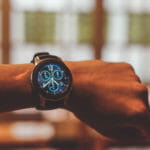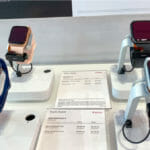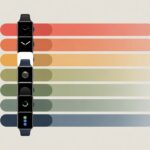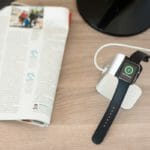Apple Watch is a new type of wearable device that combines the functionality of a smartphone with the convenience of a wristwatch.
It allows you to receive calls, messages, emails, text messages, and other notifications from your iPhone or iPad wirelessly, and has proven to be an enormous hit with fans across the world.
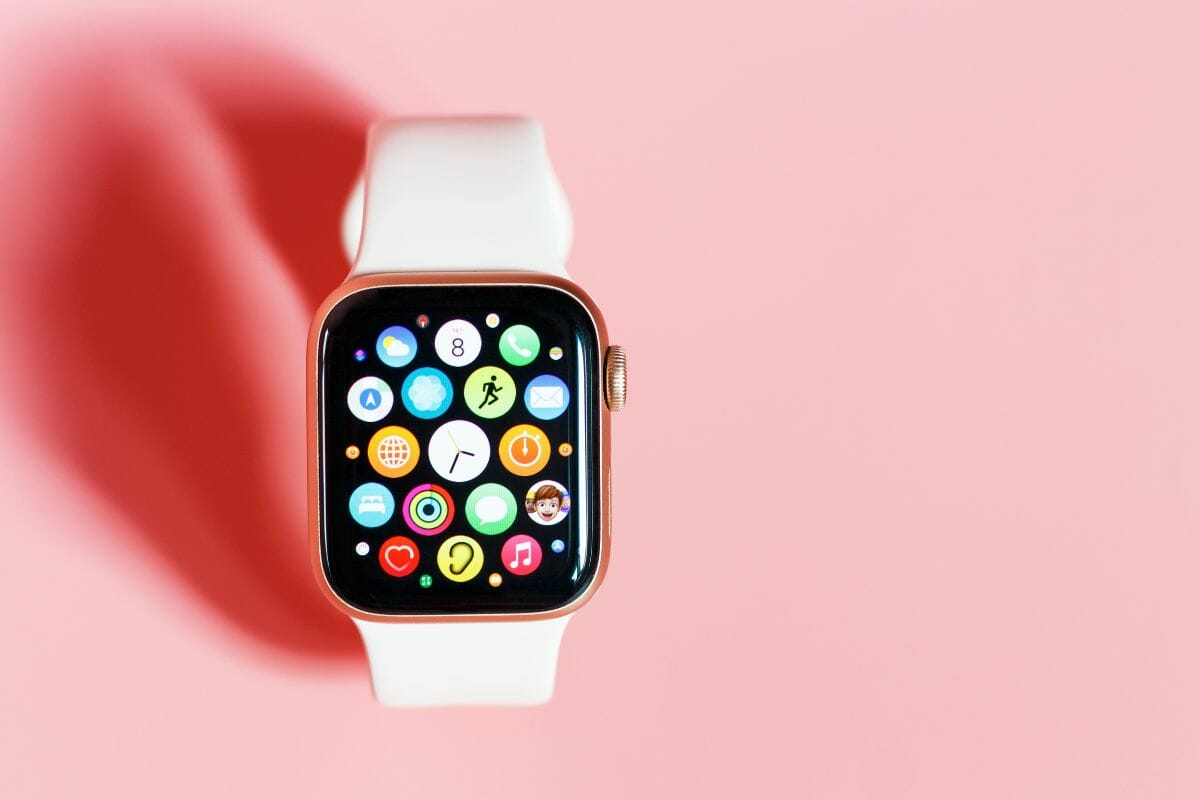
The Apple Watch Series 3 comes in two sizes: 38 mm and 42 mm. Both models feature the same display, processor, and battery capacity.
The only difference between them is their size; but which is the best option for your needs? We put them both to the test to find out.
What Is An Apple Watch?
An Apple Watch is a multipurpose device that can perform many functions. It’s designed to work as a standalone smartwatch, paired with an iPhone via Bluetooth 4.0 LE, or it can also act as a standalone GPS tracker.
You can use it to make phone calls, send texts, check email, browse social media feeds, listen to music, view directions, control smart home devices, and more.
Which Is Better: The 38 mm Or 42 mm Apple Watch?
If you want something small and light, then the 38 mm Apple Watch might be the right choice for you. However, if you prefer a bigger screen, then the 42 mm model will suit you better.
In this article, we compare the main differences between the 38 mm Apple Watch and the 42 mm Apple Watch, so you can decide which one is better for you.
Both versions have a similar design, including a round case made of stainless steel and aluminum alloy.
They are available in three different colors: silver, space gray, and gold. There are a few differences between the two models, and these include:
Display
The 38 mm Apple Watch has a smaller display than the 42 mm model – 563 sq mm compared to 740 sq mm.
This means that it’s easier to see what you’re doing when using the 42 mm Apple Watch, and this can be useful if you struggle to work with small screens or have issues with visibility or accessibility.
Processor
The 38 mm Apple Watch has the same processor as the 42 mm model, meaning they both offer great performance – no matter which option you choose, you can rest assured that you will enjoy the same high-quality, fast processor to allow you to carry out all your tasks without issue.
Weight
As you may expect, the 38 mm model comes in at a lower weight than the 42 mm – 27g versus 32g. While not a huge difference, this may be a dealbreaker if you are not a fan of big, heavy watches.
Display Resolution
The display resolution of the 42 mm model is better than that of the 38 mm, with the former boasting display stats of 312 x 390 pixels compared to 272 x 340 pixels.
Once again, if you like a crystal clear, super crisp screen, the bigger watch may be a better option.
Band Size
An often overlooked quality, the size of the band also differs from watch to watch, with the 38 mm offering a band of 130 to 180 mm, and the 42 mm offering a band of 140-185 mm.
If you have larger, bulkier wrists, then the 42 mm is a better option that will help you to stay comfortable.
Battery Life
Battery life is another important consideration when making your purchase; the 38 mm model comes with an 18-hour battery life, while the 42 mm increases this by between 20 and 25.
So, which is the better option? Well, each version has pros and cons, but ultimately, it depends on your preferences.
For example, if you prefer a smaller display, the 38 mm is probably the best option. On the other hand, if you need a bigger screen, then you should go for the 42 mm Apple Watch.
However, based on our research, we would recommend the 42 mm Apple Watch over the 38 mm model.
The 42 mm offers a higher resolution display, longer battery life, and a wider range of sizes, making it the perfect fit for most people.
What Features Does An Apple Watch Include?
There are many features included with the Apple Watch, ranging from fitness tracking to notifications, and even music playback.
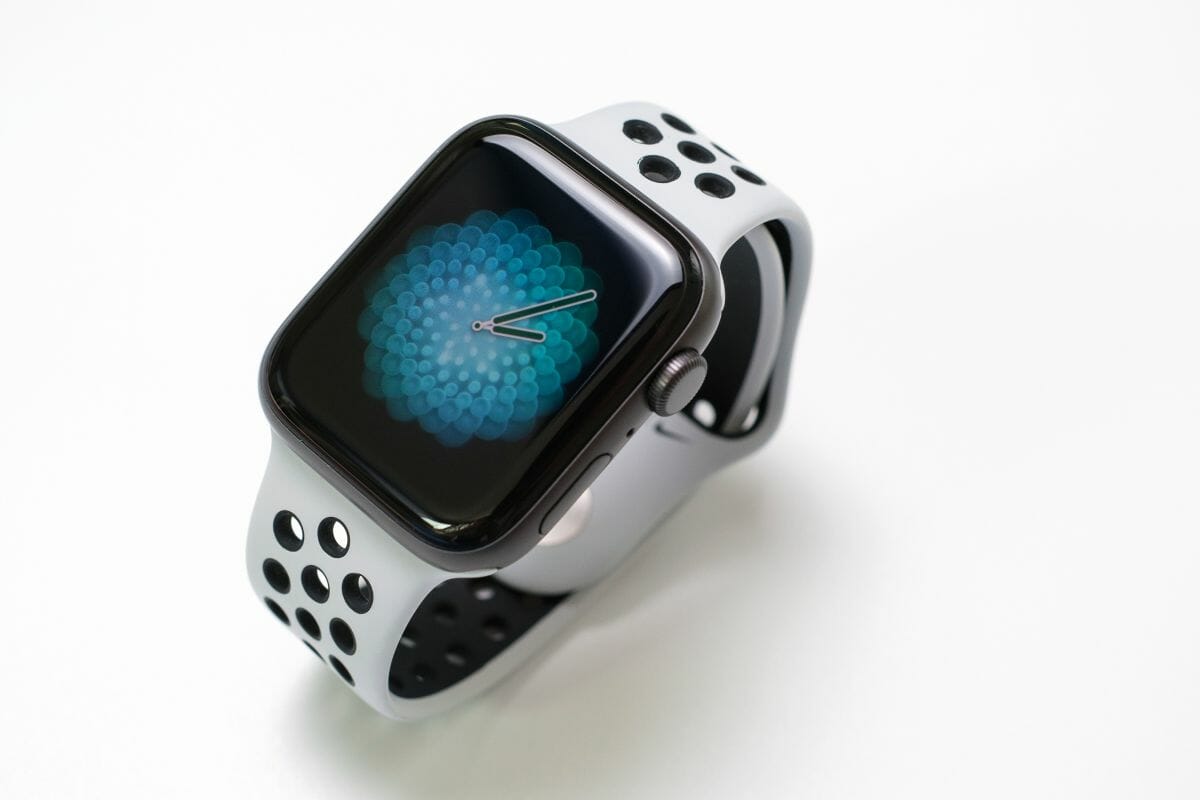
Let’s take a look at some of the key features you get with an Apple Watch:
Activity Tracking
With activity tracking, you can track how much time you spend walking, running, cycling, swimming, etc., and view this data in graphs and charts.
You can set goals, such as ‘walk 10 km every day’, and keep track of your progress throughout the week.
Notifications
With notifications, you can receive alerts via email, text message, push notification, or even through Siri.
You can also use the app interface to manage these alerts, so you don’t miss any important messages.
Music Player
If you want to listen to your favorite tunes, the Apple Watch allows you to do just that. Simply pair the watch up to your iPhone using Bluetooth, and you can play music directly from your phone.
Fitness Tracking
If you want to monitor your daily activities, the Apple Watch tracks your steps taken, calories burned, distance traveled, and more. It also includes a heart rate sensor, allowing you to measure your heart rate during exercise.
Siri
You can simply ask questions about anything, including weather forecasts, sports scores, stock prices, news headlines, and more, by speaking into the watch.
Siri can also read out incoming texts, emails, and calendar appointments.
Apps
The Apple Watch has apps available for downloading, including Health Kit, Maps, Weather, Stocks, and Newsstand.
These apps allow you to make the most of your Apple Watch, whether you’re exercising, working, or relaxing.
Are There Any Downsides To Apple Watches?
Of course, there are always going to be downsides to buying something new, and the same applies here. However, there are a few things worth noting before you buy one.
Price
The price of the Apple Watch ranges from £349 ($499) to £1099 ($1599), depending on its size and storage capacity.
This means that the cheapest models may not have all the features you expect. If you want the latest model, you will likely pay more money.
Size
Some users find that the Apple Watch is too small for their wrist.
While the 38 mm Apple Watch is slightly larger than the original Apple Watch, it still feels quite small when worn around the wrist.
Battery Life
While the battery life of the Apple Watch lasts for days, it isn’t as long-lasting as the batteries found in smartphones. With heavy usage, the battery life could drop to less than four hours.
What To Consider When Buying An Apple Watch
When purchasing an Apple Watch, you should consider what you need it for and whether it fits with your lifestyle.
Some key considerations include:
What You Plan To Use It For
Do you plan to use the Apple Watch primarily for fitness tracking, or would you rather use it for other purposes? Do you plan to wear it every day, or only occasionally? Will you be using it for work or leisure?
How Much Money You Can Spend
Will you spend a lot of time looking at your watch, or will you mainly use it to check the time? How much time will you spend using the Apple Watch each week?
Your Lifestyle
Will you be using the Apple Watch regularly, or just occasionally? Is the Apple Watch compatible with your current smartphone? Does it fit with your lifestyle?
Remember that the Apple Watch won’t be suitable for you if you don’t already own an iPhone.
Wrist Size
Is the Apple Watch large enough to fit comfortably on your wrist? Are you planning to wear it during exercise?
Storage Space Required
Does the Apple Watch come with enough space for all of your data? If you’re planning to store lots of music, photos, videos, and documents, you’ll need plenty of room.
Features And Functionality
Is the Apple Watch’s screen big enough to see easily (if you want to know about more about apple watch features, read here)? What kind of notifications does it support? How many apps can you download?
Design
Are you happy with the design of the Apple Watch (see also ‘How To Locate Apple Watch‘)? Would you like a different style?
Final Thoughts
Ultimately, your decision will come down to personal preference. Some people love the idea of wearing a smartwatch, while others prefer simpler watches.
The Apple Watch offers a lot of functionality, and the choice between models is ultimately a personal one – the perfect watch for you will depend largely on your needs and preferences, so make sure you do your homework!
- Why is my fitness tracker not holding a charge? Your Lazy Battery Might Need a Pep Talk - February 9, 2026
- How to use Bluetooth headphones with a treadmill Without Accidentally Inventing a New Dance Move - February 8, 2026
- Fitbit Battery Life Comparison: Which Tracker Won’t Abandon You First? - February 8, 2026

